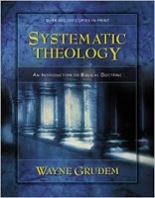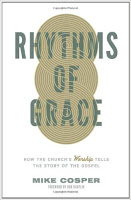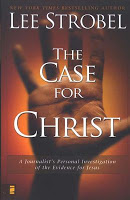The key feature of presuppositional apologetics: The Christian apologist must hold the supernatural revelation contained in the Bible as the preeminent standard of thought.
Important Point #1: Apart from this presupposition, one could not make sense of any human experience because there can be no set of neutral assumptions from which to reason with a non-Christian.
The idea: there is only one true God, the Triune God of Scripture, who does and must exist; because of the impossibility to the contrary. Without him, there is nothing: no logic, no discussion, no right or wrong. The Christian must recognize there is no neutrality and we should not act as if there is when engaging in apologetics. Proverbs 26:4–5, “Answer not a fool according to his folly, lest you be like him yourself. Answer a fool according to his folly, lest he be wise in his own eyes.” The first line can be applied to say don’t surrender to the unbeliever’s presuppositions and the second can be applied to say, make sure you ran in internal critique. An internal critique is like a systems check for consistency – and inconsistency.
Important Point #2: A Christian cannot consistently declare his belief in the necessary existence of the God of the Bible and simultaneously argue on the basis of a different set of assumptions in which God may or may not exist, and Biblical revelation may or may not be true.*
Point #2 is in part derived from 1 Peter 3:15: “but in your hearts honor Christ the Lord as holy, always being prepared to make a defense to anyone who asks you for a reason for the hope that is in you; yet do it with gentleness and respect”
Note the command: in your heart, honor Christ the Lord as holy. The Christian (this includes Christian apologists) can never give up the Lordship of Christ. Peter also tells Christians to always be prepared to give a reason for their hope. It is fair to say that this means that reasons and evidence should be used but within the proper framework. Step by step, it goes:
1. Honor Christ as Lord
2. Always be prepared
3. Give reasons for your hope to those who ask
4. Do so with gentleness and respect to those who ask
The Christian must do this to the best of their ability, all the while recognizing that for genuine conversion to occur, people must be regenerated by the Sovereign work of the Holy Spirit. Matt Slick of Carm.org: “A Christian presuppositionalist presupposes God’s existence and argues from that perspective to show the validity of Christian theism. This position also presupposes the truth of the Christian Scriptures and relies on the validity and power of the gospel to change lives (1 Corinthians. 2:14)”
Some notable advocates of this apologetic methodology include: James White, Greg Bahnsen, K. Scott Oliphint, and Cornelius Van Til (here is an interview where I do my best to explain the theological foundation and current state of presuppositionalism).
PRESUPPOSITIONAL APOLOGETICS and TOTAL DEPRAVITY
Presuppositional Apologetics is distinct in its emphasis on the total depravity of man – especially the noetic effects of sin.
Total depravity refers to a depravity that is thorough – this means man’s cognitive abilities are marred by sin. They are still made in the image of God, of course, but sin has ruined everything. This is why there is no such thing as a neutral observer who has no ‘leanings’ either way. Men are sinners and by way of Adam are a race of rebels against the King.
One place I would refer to is 2 Corinthians 4:4 “In their case the god of this world has blinded the minds of the unbelievers, to keep them from seeing the light of the gospel of the glory of Christ, who is the image of God.” God, if he sees fit, does remove the veil! And he does use means – such as the preached gospel.
Presuppositionalists are NOT anti-evidence, we just insist it must be used in the right way in the right context. D.A. Carson preached a sermon at Mars Hill during something they did called ‘A Day with Dr. Don.’ It is called ‘Why Doubt the Resurrection’. I really enjoyed it and found it very helpful in regards to the proper use of evidences.
We see from Acts 17, that yes, Paul argued for the resurrection but he also attacked the whole pagan foundation of his audience. This means they didn’t need some new facts, they needed a whole new paradigm – one only wrought by the Spirit of God!
And as far as common ground, here is my understanding: there is common ground in a certain kind of sense because the unbeliever must ‘lease’ the Christian worldview without ‘buying’ it. So the common ground is not based upon our worldviews but based upon them stealing ours. This is why we run an internal critique of their system, to show where they should be, not where they necessarily are. We also attack their presuppositions, demonstrating they cannot think in line with what they say they believe with total consistency.
We must never give in to their view of things and feign as if it is possible God does not exist. We proclaim ‘Jesus as Lord over all’ to them – this is line with the apostolic preaching of the Book of Acts! Never will you find a probabilistic argument for God in the kerygma.
WHY THE SPECIFIC CHRISTIAN GOD OF THE BIBLE?
One thing which is essential is this: ONLY the Triune God, based upon who he is purported to be in the Bible, fulfills the conditions necessary for intelligibility. For uniformity. For the possibility of knowledge.
The basis of knowledge is mind. But how can the basis of knowledge be mind, when the atheist is saying that, ontologically, reality is non-mind? Atheism presupposes that mind is a phantom by-product of matter, and not a real thing in and of itself. I just want the atheist to use their own metaphysical presuppositions; not mine. The Christian can affirmed the basis of knowledge as mind. This is called Transcendental Argument for God’s Existence.
To get at this, consider how the atheist would consistently answer these questions:
“What is the epistemic necessity for your view of reality? Not just your own personal epistemic necessity but what is THE epistemic necessity , since knowledge was possible prior to you. Surely you have something, since you agree we can know things. If it’s along the lines of the “I think, therefore I am” school of thought, then what was the thing in play necessary for epistemology before you were on the scene, since you postulate your own inner thought life as the source now? I also wonder how you, as an evolutionist believes, in self-consciousness in any meaningful fashion?”

They say things like “I am not omniscient”, yet one would first have to know an omniscient being to compare themselves against to even make such a claim. Their response? “No I wouldn’t, because I don’t believe in God, and I just did it anyways.” Then they jump to the conclusion that their mind, as a subject, correlates to the object of “reality” without defining what they mean by “reality” (metaphysics) or providing a transcendental basis through which to observe or somehow predicate that the human mind correlates to reality (epistemology). The atheist simply wills their epistemology into existence. [This paragraph was contributed from Colin Samul. I edited and adapted it.]
One reason why the answer must be the God of the Bible is because only the ontological Trinity can account for the relational aspects of a God who also has aseity (aseity means He needs none, is self-existent and is complete unto Himself). Yahweh’s Triune nature is what enables Him to have relationship without relying on anything outside of Himself. This also accounts for how God has knowledge without having to observe anything outside of Himself (as in, He is not taking in new information but rather knows all items at the same time and with equal clarity).
The Trinity is the “gas in the tank”, as it were (thanks to Doug Powell for pointing this out to me). None other qualify. Most don’t even claim to. The story atheism tells of the universe makes it a non-contender. These are variations on a theme: Christianity is true due to the impossibility to the contrary and only the Triune God of Scripture satisfies the needed conditions necessary to make sense of reality.
The atheist will often answer back with some form of, “I am not satisfied with that … because I am not satisfied with that”. OK. Still, the Christian can have cognitive rest at this juncture. The atheist will not – for now. But still. As I try to lay out my reasons for belief in a stripped down manner, it goes something like this:
-Jesus (and only Jesus) saved me.
-Critical investigation demonstrates that all other systems fail, as they must.
-God has spoken. He says:
–“The fear of the LORD is the beginning of knowledge: but fools despise wisdom and instruction.” (Proverbs 1:7)
–“The fear of the LORD is the beginning of wisdom: a good understanding have all they that do his commandments: his praise endureth for ever.” (Psalm 111:10)
–“And unto man he said, Behold, the fear of the LORD, that is wisdom; and to depart from evil is understanding.” (Job 28:28)
–“The fear of the LORD is the beginning of wisdom: and the knowledge of the holy is understanding.” (Proverbs 9:10 )
–“Christ; In whom are hid all the treasures of wisdom and knowledge. And this I say, lest any man should beguile you with enticing words.” (Colossians 2:3-4)
Here is a small, more devotional-leaning, article on ‘Christ, our Wisdom’, which I found value in (it is not meant to be polemic but more contemplative). These verses all have to do with the “TAG” Argument. I have greatly benefited from learning about the Transcendental Argument for God’s existence. Here are some good resources for you to begin to get a hold on TAG:
The Transcendental Argument for God’s Existence by Michael R. Butler
A Concise Outline for the Transcendental Argument for God’s Existence by Jamin Hubner
Transcendental Arguments by John M. Frame
Choosing Hats – a website utilizing the TAG argument in its apologetic methodology
SOME MORE RESOURCES
I once had many incorrect assumptions about what presuppositionalism entailed. This link may be helpful for those who still do – especially the part about the unbeliever’s need and the use of evidences (the brief example he uses is the resurrection). Here are some more resources:
Two Backpack Radio episodes on Presuppositionalism.
An article by outspoken advocate John Frame.
This link is a nice supplement.
A list of books one can purchase on the topic:
Hear an audio from a debate on this topic
FINAL NOTE
Ironically, I was once “anti-Presuppositional”. I still have some reservations about the actual practice of that school of thought from some of its actual practicioners. There are some extreme presuppers (note I said the most extreme, not the run-of-the-mill) who (in essence) say, “Oh, you don’t believe in God? Then there is nothing for us to even talk about until you do”. Sometimes it seems as if they more enjoy debating Evidentialists more than they do evangelizing and more enjoy converting Classicalists than non-Christians!
This should not be.
UPDATED: 12/03/2014
*the wording of point #2 was adapted from WikiPedia
_____________________________________________________________________________________________________
ABOUT THE AUTHOR:
Vocab Malone is an urban apologist and slam poet. Vocab holds a Master’s Degree from Phoenix Seminary and is pursuing further education at Talbot.
Tags: Presuppositional Apologetics, Presuppositionalism, TAG, Transcendental Argument for God's Existence




















